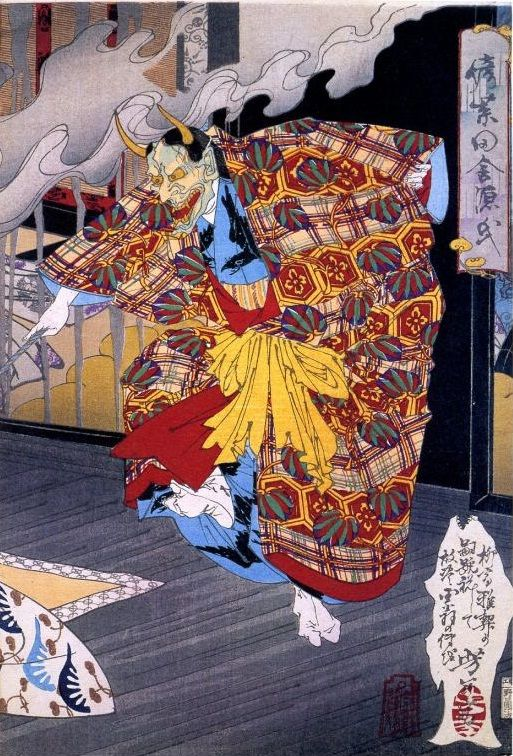
Japanese Yokai: 陰ノ六:般若:
Le terme bouddhiste hannya signifie:
Der buddhistische Begriff Hannya bedeutet:
Kage no Roku: Hannya:
佛教術語般若的意思是:
般若:
仏教用語の般若(はんにゃ)とは、
サンスクリット語: प्रज्ञा, prajñā(プラジュニャー)、
パーリ語: पञ्ञा, paññā(パンニャー)に由来する。
全ての事物や道理を明らかに見抜く深い智慧のこと。
https://ja.wikipedia.org/wiki/%E8%88%AC%E8%8B%A5
Prajñā or paññā, is a Buddhist term often translated
as “wisdom”, “intelligence”, or “understanding”.
It is described in Buddhist texts as the understanding of the true nature of phenomena
https://en.wikipedia.org/wiki/Praj%C3%B1%C4%81_(Buddhism)
Yokai japonais : Kage no Roku : Hannya
Hanya :
Le terme bouddhiste hannya signifie
Sanscrit : प्रज्ञा, prajñā,
Pali : dérivé de पञ्ञा, paññā.
Sagesse profonde qui voit clairement à travers toutes les choses et la raison.
Japanisches Yokai: Kage no Roku: Hannya
Hanna:
Der buddhistische Begriff Hannya bedeutet
Sanskrit: प्रज्ञा, prajñā,
Pali: Abgeleitet von पञ्ञा, paññā.
Tiefe Weisheit, die alle Dinge und Vernunft klar durchschaut.